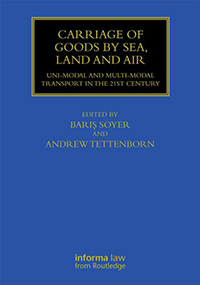This article examines and analyses legal issues that arise in the event of an acute maritime oil pollution incident. The focus is on reimbursement claims set forth by the State pursuant to a governmental intervention, and its interrelation with the applicable regulations in the Maritime Code and the Pollution Act.
Camilla Arn?y Send e-post








